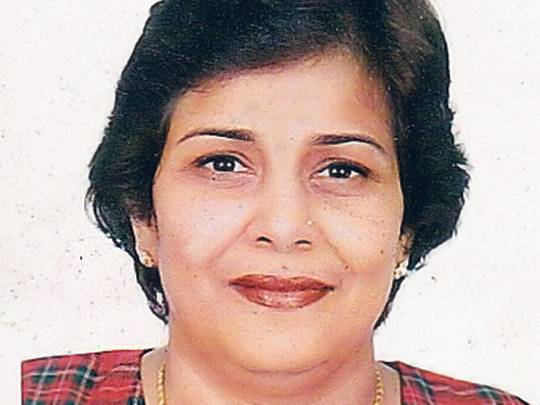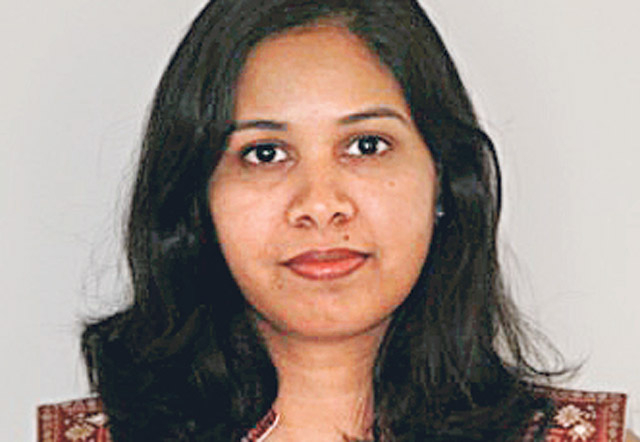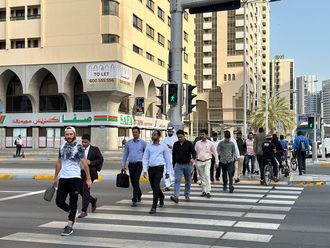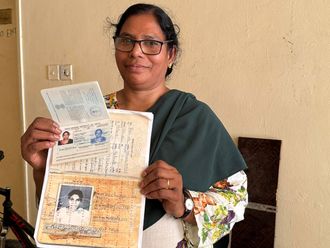
One watches a clock in an office cubicle in Dubai, counting down to when she will finally hold her four-month-old.
Another follows the trail of a sinking sun across vast South African plains, bringing water to a home that is still kilometres away.
A third's bruised arm hides under baggy sleeves as she stumbles into a London Tube — she is leaving her husband, again.
The world's women survive vastly different lives, but their stories are of endurance, grit and grace.
March 8 marks International Women's Day — yet just how much has changed since 7,000 Parisian women marched to Versailles in 1789, chanting "liberty, equality, fraternity"?
According to the United Nations Population Fund (UNFPA), women currently constitute over two-thirds of the illiterate adult population worldwide. They also represent 70 per cent of the planet's poor — a reality that became more severe after the recent global economic crisis.
When the going got tough, women were the first to be fired. About 22 million were expected to have lost their jobs in 2009, according to the United Nations Development Fund for Women (Unifem).
Office ostracism
But sometimes, walking in through the office door is tougher than having to walk out — the corporate world is a working woman's battlefield.
In a gulfnews.com poll, 34 per cent of voters said financial insecurity was the key issue facing women today, while 28 per cent thought it was gender discrimination. Grace Fernandes, an administration executive working in Dubai, found both factors playing a role in the workplace.
She said: "Recently, for no fault of mine, I was asked to apologise to a CEO of another company. He was taking advantage of his position and I refused to bow down to pressure. This is a common situation in the workplace — some male chauvinists get a kick out of harassing gullible women."
For such victims, Fernandes has some suggestions: "They need to be educated through seminars and programmes, and also have a back-up system or a helpline that they can count on."
Empowerment is essential, especially as across businesses worldwide, women are paid 17 per cent less than men for the same work.
According to Unifem, even as women perform 66 per cent of the world's work and produce 50 per cent of the food, they earn only 10 per cent of the income and own one per cent of the property.
Is this a bad deal?
For Dr Arpitha Reddy, founder of a web portal dedicated to women — dubaimoms.com, the figures reflect an age-old norm.
She said: "[These] challenges are not new to womankind. But though women today are well-equipped to meet social and financial pressures, they are more stressed out and depressed than ever."
Women who want to be "financially independent and professionally competitive" often have to battle rigid societal rules, according to Dr Reddy. The Abu Dhabi resident said: "Irrespective of socio-economic independence, there are certain expectations from women that haven't changed with time. The pressure to get married, have children and nurture a domestic life continues to exist."
Tough choices
Those who choose to do both often have to be prepared to work twice as hard.
In a survey of 800 business executives by a US-based human resource management firm, 76 per cent of women said it was challenging to return to work as new mothers.
But for Norma Lim, who works as a consultant in a hospital in Dubai, the decision was anything but difficult.
The Filipina expatriate said: "I love my job — it is for my personal growth and fulfilment. I didn't think it was necessary to give it up just because I had a child."
For others, however, the challenge often proves too complex.
In Arab states, only 28 per cent of women participate in the workforce.
This is despite the fact that the adult literacy rate for females in the UAE is currently at 91 per cent, according to the 2010 Education for All Global Monitoring Report.
As long as they are in control of their lives and like what they are doing, the decisions women make are personal, Lim said.
"All women, no matter where they're from, need support from loved ones in what they are doing. That's all."
How crucial is the role of the mother in advancing the status of women? Do you see improvement in the status of women in the Middle East?













